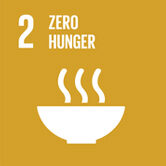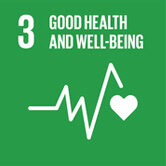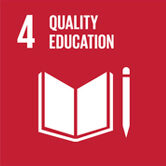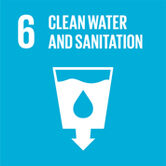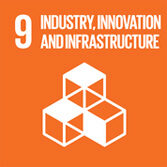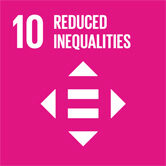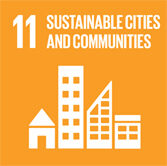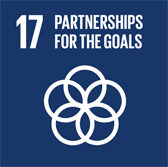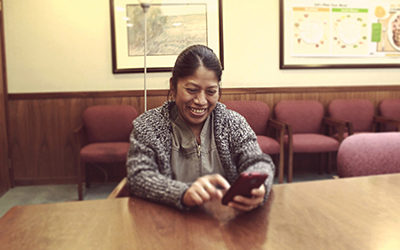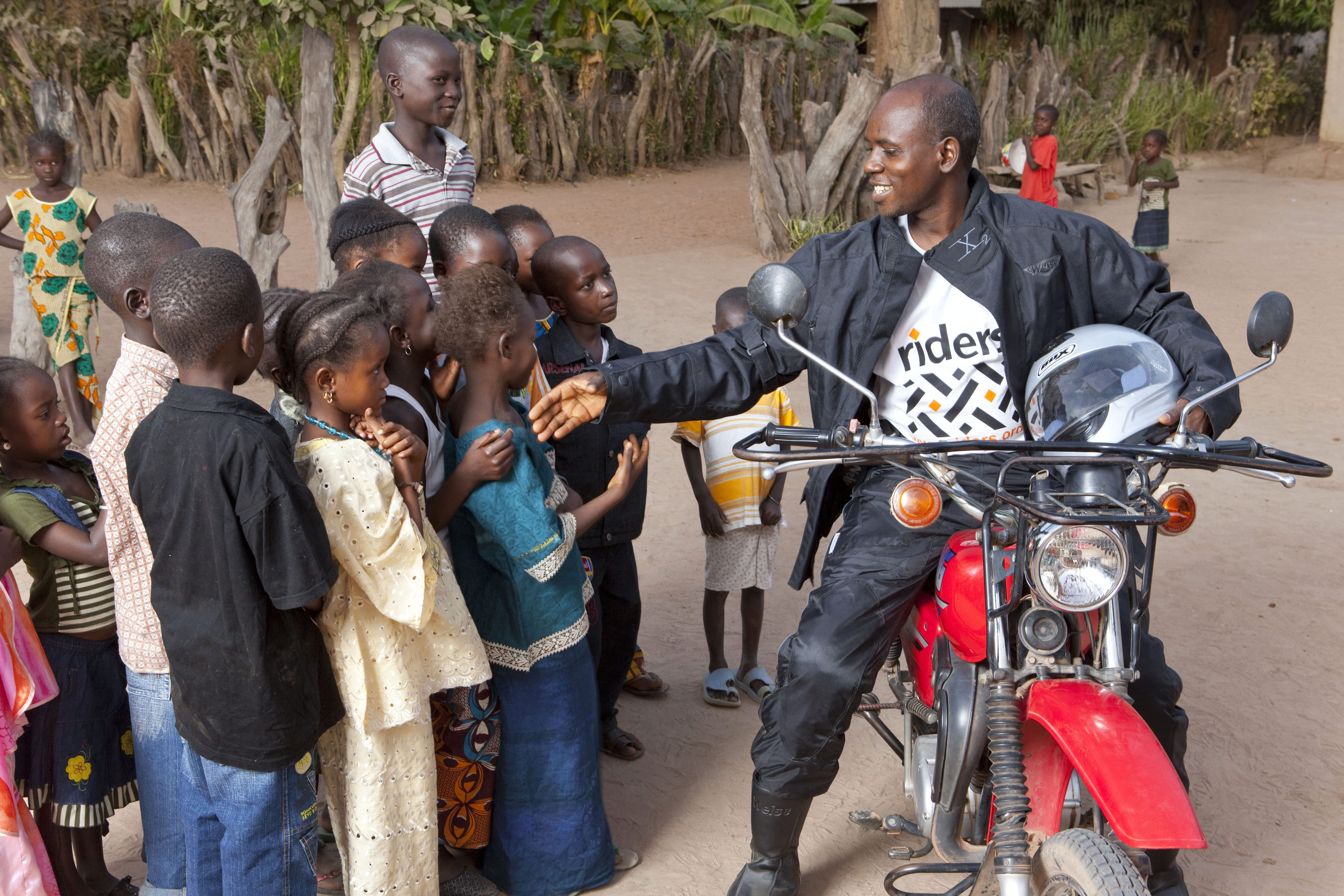
2015 Winner: Innovation: Africa
Innovation: Africa is a non-profit organization that brings Israeli innovation to African villages. Their mission is to engage it top-quality, sustainable, scalable and renewable infrastructure projects in sub-Saharan Africa. Thus far, they have focused primarily on solar and agricultural work. They provide schools and medical clinics with solar power to offer evening study, adult education, well-lit nighttime medical care and refrigeration for lifesaving medicines and vaccines. Their solar powered water pumps provide over 20,000 liters of clean water a day, and our drip irrigation systems provide a source of food and income for farmers and their families. Over 675,000 people have been impacted by their projects, and more than 350,000 vaccines have been issued from their solar refrigerators, protecting children against preventable disease.

Primary Area of Impact: Healthcare, Safe Water
Geographic Area (Continent): Africa
Geographic Areas (Countries): Cameroon, Democratic Republic of the Congo, Eswatini, Ethiopia, Malawi, Senegal, South Africa, Tanzania, Uganda, Zambia
Organizational Type: Non-Profit
Year Founded: 2008
Website: www.innoafrica.org
For us, energy is not a goal in and of itself. It is a means to an end-a tool to improve the caliber of rural healthcare and education, to provide rural people with clean water, food security and economic growth.
Social Challenge
Fifty percent of students in the developing world go to schools without electricity according to the Sustainable Energy for All Initiative. Most don’t have light at home either. They can’t read, do homework or study for national exams without the use of expensive candles and kerosene lamps that come with the risk of smoke inhalation, eye-strain, and fire. The same is true for their teachers, many of whom turn down rural teaching positions because of this reality. Additionally, according to Practical Action’s Poor People’s Energy Outlook 2013, 30% of medical clinics in sub-Saharan Africa do not have electricity. These facilities are nearly invisible at night to those who need them. Midwives can barely see the women who come in for maternity services; clinic staff struggles to diagnose and treat patients needing urgent care. These clinics can’t even store vaccines to serve their communities, as the same report mentioned above also states that nearly half of all vaccines delivered to the developing world spoil due to lack of refrigeration. According to the International Energy Agency, there are 1.3 billion people today without access to electricity, and 599 million of them are in sub-Saharan Africa. Without electricity, not only do they struggle with the challenges above, but they are unable to pump clean water from below ground. At best, they use hand pumps that often break down, and often have to walk for long distances and wait in line just to bring water home to their families. At worst, they have no water. Women spend their days searching for dirty water to bring home to their families – water that they know could make them sick, but they have no other choice. They have little to drink, and even less to irrigate, leading to hunger, malnutrition, and an unending cycle of poverty. For them, energy is not a goal in and of itself. It is a means to an end-a tool to improve the caliber of rural healthcare and education, to provide rural people with clean water, food security and economic growth.
UN Sustainable Development Goals (SDGs)
Leadership
Sivan Ya’ari is the founder and CEO of Innovation: Africa, a nonprofit that brings Israeli solar, agricultural and water technologies to African villages. She was born in Israel, raised in France, educated in the United States with degrees in Finance from Pace University and a masters in International Energy Management and Policy from Columbia University. Sivan has been working in Africa for over 20 years and over the past decade, using Israeli technologies, has brought clean water and light to over 2 million people across 10 African countries. Alongside of her are leaders in multiple locations: Israel, United States, Uganda, Tanzania, Malawi, Cameroon, South Africa and Zambia. The Executive Board of Directors has a representive from each key country in Israel (David Arison, The Ted Arison Family Foundation), United States (Ralph Nakash, Jordache Investment), and South Africa (Co-Founder and Co-CEO, Bayport Management Limited).
Impact
Innovation: Africa has completed over 300 solar, water and agricultural projects, bringing light, clean water, improved education and refrigeration for lifesaving medicines and vaccines to nearly 2 million African people, across 10 countries. They have reached an audience of more than 100 million worldwide, a social media community of over 565,000 people and still counting. More specifically, Innovation: Africa has been recognized by numerous organizations such as The United Nations, beginning in 2012 when granted Special Consultative Status to the United Nations Economic and Social Council (ECOSOC), and was also awarded the Innovation Award for the use of Israeli technologies in the developing world. In international media, iA’s work was covered through Forbes, The Daily Mail, The Christian Broadcasting Network, Face2Face Africa and PR Newswire. iA was recognized as the recipient of The Nation Branding Award by Knowledge at the Wharton School of the University of Pennsylvania. The Founder and CEO of Innovation: Africa, Sivan Ya’ari, was named one of the “50 Most Influential Women in Israel” by Forbes Israel and one of the “40 Under 40 Most Promising Israelis” by Israel’s leading business magazine, Globes.
Innovation
iA has developed a two-part solution to this ensure the investments we make in rural communities continue to provide people with the services they need:
- Community Enterprise: The committee is a group of people invested in the project (local government, tribal leaders, heads of the women’s group, PTA members, clinic/school staff and more). They learn about solar technology in the months before their community’s installation, and they are responsible for maintaining their solar system after installation.
- Remote Monitoring: They monitor iA projects using a small device that plugs into a cell phone SIM card installed in a community’s solar system and which collects output data. This data is then sent via text message to an online server, which allows iA staff to check in on each solar system from any computer with an internet connection. Using this information, we can predict problems before they start, perform remote diagnostics, optimize system design and more.
Transferability
They have built our model to be transferable. They started in 2008 with two solar projects. They made mistakes. They learned from them, and replicated their model with the new learnings. They got to 10 projects, learnt more, and replicated again, integrating lessons learned each time. It was an iterative design process, and ultimately they created a model that was so successful that they’ve now replicated it over 80 times to the benefit of nearly 700,000 people. But there is still so much more to do. According to the Poor People’s Energy Outlook 2013, 255 million sub-Saharan Africans are served by medical clinics without energy. And worldwide, there are 1.3 billion people that lack access to electricity. That’s more than one in six people. Energy poverty is a global humanitarian crisis, and just last year, UN Secretary General Ban Ki Moon declared 2014 – 2024 as the Decade of Sustainable Energy for All. Innovation: Africa has taken an active role in the UN’s Sustainable Energy for All Initiative, joining the Practitioner’s Network, sharing our model and our technology solutions, sharing the metrics they examine and their processes for collecting data. They believe in open source solutions, and want others to learn from any aspect of our work that is useful to them.
Accomplishments
- 2012 Special Consultative Status to the United Nations Economic and SocialCouncil
- 2013 received a UN Innovation Award
- 2013 – Social Media Leadership Award by Knowledge@Wharton
- 350,000 vaccines have been issued from our solar-powered refrigerators to children that previously were not immune to diseases like measles, polio, and tuberculosis.
- Since 2008, 300 projects have completed in 10 countries
- 3 million people have been impacted
- Featured in Jodie Cohen’s book, Tikkun Olam: Israel vs COVID-19, published in June 2020




